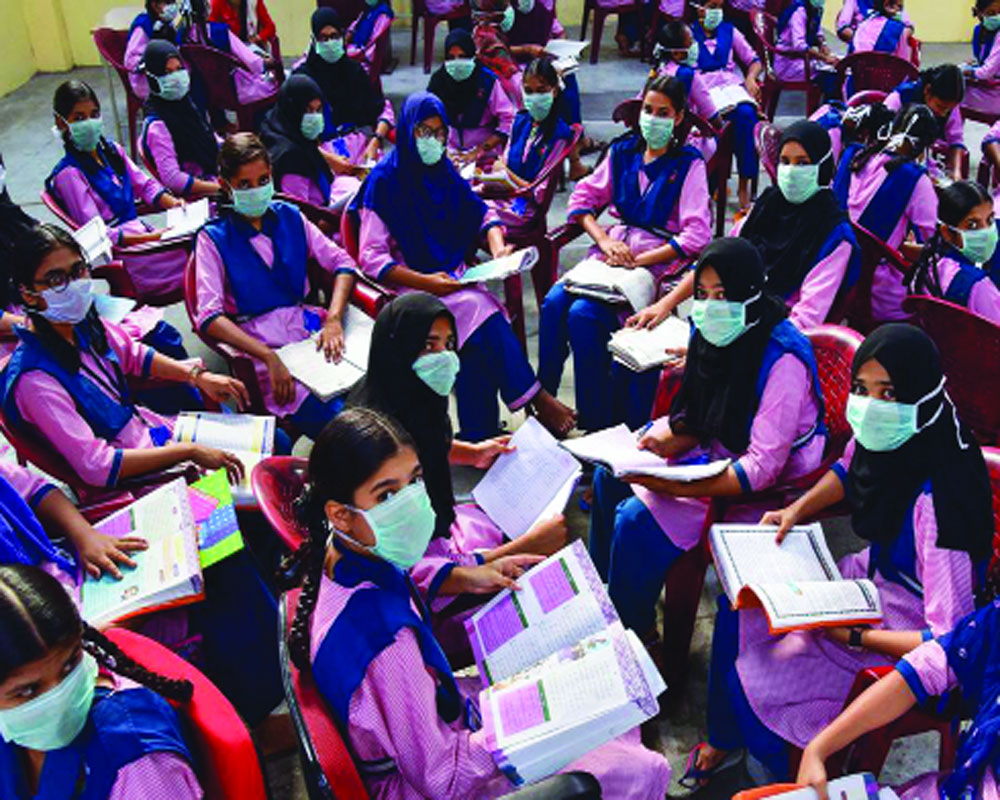Home grown test-kits and geo-fencing of COVID-19 suspects show why we need to prioritise the sciences, R&D
If indeed, as Plato famously said, “Necessity is the mother of invention,” then the Coronavirus pandemic has certainly brought out Indian innovation at its best. To begin with, a team at IIT-Bombay and professional and experienced members among the alumni recently developed an app for mobiles called ‘Corontine,’ which would help the authorities keep track of potential or suspected asymptomatic carriers of COVID-19 if they were to leave their quarantine zone. This has been done by creating what the techies are calling a “geo-fence” to keep tabs on people who had travelled abroad since February-end and had been advised home quarantine for a minimum of 14 days to see if they develop symptoms. The self-quarantine was not just for those who travelled abroad, but also for the people they came in contact with after returning, including friends and relatives. Asymptomatic carriers of COVID-19 have been a cause of concern for the medical community globally and in India, too. Particularly as there have been several cases in the country where people escaped quarantine and mingled with the masses, irresponsibly increasing the potential risk of community transmission of the contagion. Then there was Minal Bhosale, a virologist from Pune, who with the help of her team created the first Indian testing kit for the virus, just a day before she gave birth to a baby girl. The test was delivered in a record time of just six weeks and the first batch has now hit the markets, making for a quick and affordable option. The engineering teams based at the automaker Mahindra and Mahindra’s Mumbai and Nashik manufacturing plants developed an Ambu bag ventilator in 48 hours that will cost just Rs 7,500. This indigenously-developed bag valve mask is a self-inflating device that is typically used to help patients with breathing problems and will be an answer to India’s worry over the shortage of ventilators for Coronavirus patients. Now, the Defence Research and Development Organisation (DRDO) is trying to develop “multi-patient ventilators”, wherein several patients can be supported by a single ventilator to meet the huge demand if the Covid-19 outbreak goes out of control as India has only 40,000 ventilators as of now.
This goes to show that when push comes to a shove, in times of crisis, the Indian spirit and mind kick into overdrive to find answers to questions which puzzle the world even today. All around the world, Indian minds are revered and are often even found at high-ranking positions in the fields of science and discovery at the most prestigious institutions. This also points out to the lack of research and innovation facilities and incentives at home. The most brilliant of Indian minds usually flourish the most once they have been recognised by foreign institutions, which value their ideas more than the Indian ones. It is no mystery that the Indian education system does not leave much breathing room for innovation and critical thinking. The education system needs to be overhauled to promote critical thinking and innovation in various fields instead of the basic level of education and knowledge, which is forced upon students. In the absence of a higher education system that is application-based and which encourages breakthrough ventures, we will always remain plagued by mediocrity. The onset of the Coronavirus is something which brought out the best in our scientists and innovators at home. With one of the youngest populations of the world, if nurtured correctly and effectively, we understandably have the potential to become a superpower but the need of the hour is innovation in the field of science. The Government needs to back the sciences to encourage critical thinking and promote research as very few of our premier educational institutions take part or are quoted in global studies. As the recent crisis has shown, what we consign as social sectors in national budgets, namely health and education, need to be accorded a much higher priority. At the same time, amid all talk of immunity, our Ayurvedic sciences can be revived to inculcate a holistic health culture. India has overcome problems before and it surely will do so again when everyone works together and puts human life above everything else. In the end, the battle is ours to fight; nobody else will do it for us.


























